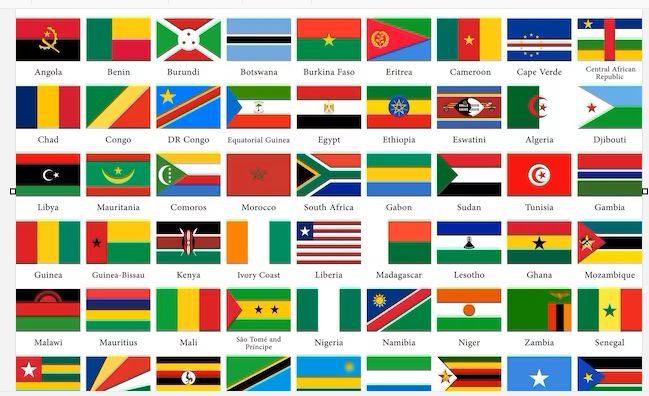The sweeping tariff policies initiated by former U.S. President Donald Trump in 2025 have disrupted global trade dynamics, including Africa’s economic relationship with the United States. While these tariffs present challenges, they also offer opportunities for African nations to recalibrate their trade strategies, diversify their markets, and strengthen regional cooperation. This article explores how Africa can benefit from Trump’s new tariff regime despite its initial adverse impacts.
**Understanding Trump’s Tariff Regime**
Trump’s tariff policy includes a universal 10% baseline tariff on imports and a 60% tax on Chinese goods, aimed at reducing dependence on China and boosting domestic manufacturing in the U.S.[1][2]. African nations, many of which previously benefited from duty-free access to the U.S. market under the African Growth and Opportunity Act (AGOA), are now subject to these tariffs. AGOA’s future is uncertain as Trump’s policies override its benefits[4][6].
Countries such as Nigeria, South Africa, and Lesotho face varying tariff rates, with Lesotho experiencing a steep 50% tax on its textile exports[3][5]. While this disrupts existing trade flows, it also forces African nations to explore alternative strategies.
**Opportunities for Africa**
Despite the challenges posed by Trump’s tariffs, African countries can leverage this situation to achieve long-term economic benefits. Here are key opportunities:
**1. Diversification of Export Markets**
Trump’s tariffs highlight the risks of over-reliance on a single trading partner like the U.S. African nations can use this moment to diversify their export markets by strengthening trade ties with other regions such as Europe, Asia, and intra-African markets. For instance:
**Regional Trade**:
The African Continental Free Trade Area (AfCFTA) provides an opportunity for intra-African trade expansion. By focusing on regional integration, African nations can reduce dependency on external markets while fostering economic growth within the continent[3][5].
– **European and Asian Markets**: Countries like China and India remain significant trading partners for Africa. Strengthening these relationships could offset losses from reduced U.S. market access[6].
**2. Boosting Domestic Manufacturing**
The tariffs on imported goods could encourage African countries to invest in local manufacturing industries to meet domestic demand and reduce reliance on imports:
– **Textiles**: Nations like Lesotho, which heavily rely on textile exports to the U.S., can shift focus toward producing goods for local and regional consumption[5].
– **Agriculture and Processed Goods**: Investments in agro-processing industries could help countries like Nigeria and South Africa capitalize on their agricultural resources[4].
**3. Strategic Partnerships**
African governments can negotiate new trade agreements or exemptions with the U.S., ensuring that key sectors are protected from high tariffs:
– South Africa has already indicated plans to secure quota agreements and exemptions for industries such as automotive manufacturing and agriculture[4].
– Collaborative efforts through regional blocs like the Southern African Development Community (SADC) could amplify negotiation power. **4. Infrastructure Development**
The disruption caused by tariffs underscores the importance of infrastructure development to support export diversification:
– Improved transport networks, energy supplies, and export-processing zones would enable African countries to meet international standards and compete globally[6].
– Strategic investments in infrastructure could attract foreign direct investment (FDI), further boosting economic resilience.
**Challenges to Overcome**
While opportunities exist, African nations must address several challenges to fully benefit from Trump’s tariff regime:
**1. Loss of AGOA Benefits**
The expiration or nullification of AGOA would significantly impact sectors that rely on duty-free access to the U.S., such as textiles and agriculture[4][6]. Governments must proactively seek alternative trade agreements or develop domestic industries.
**2. Retaliatory Trade Measures**
The global trade war sparked by Trump’s tariffs could lead to retaliatory measures from other nations, affecting Africa’s exports beyond the U.S.[7]. Diversification efforts must consider potential disruptions in other markets.
**3. Job Losses**
High tariffs threaten jobs in export-dependent industries. For example, Lesotho’s textile sector employs over 12,000 individuals who face uncertainty due to reduced U.S. demand[5]. Governments must implement policies to support affected workers.
**Policy Recommendations**
To maximize benefits from Trump’s tariff regime, African governments should adopt proactive strategies:
1. **Strengthen Regional Trade Agreements**: Fully implement AfCFTA provisions to boost intra-African trade.
2. **Invest in Local Industries**: Provide subsidies and incentives for manufacturing sectors affected by tariffs.
3. **Diversify Export Partners**: Expand trade relationships with emerging markets like India and Brazil.
4. **Negotiate Bilateral Agreements**: Pursue exemptions or favorable terms with the U.S., particularly for critical industries.
5. **Enhance Infrastructure**: Develop transport networks, energy systems, and export zones to support competitive exports.
**Conclusion**
While Trump’s new tariff regime disrupts established trade patterns between Africa and the U.S., it also presents an opportunity for African nations to rethink their economic strategies. By diversifying export markets, investing in local industries, strengthening regional trade agreements, and negotiating strategic partnerships, Africa can turn these challenges into catalysts for sustainable growth. The path forward requires bold leadership and coordinated efforts across the continent to ensure long-term resilience in a rapidly changing global economy.
By George Prince
Citations:
[1] https://www.seattletimes.com/
[2] https://taxpolicycenter.org/
[3] https://www.youtube.com/watch?
[4] https://kfgo.com/2025/04/04/
[5] https://www.dw.com/en/trump-
[6] https://www.bbc.com/news/
[7] https://www.vanguardngr.com/
[8] https://www.jdsupra.com/
[9] https://african.business/2025/
[10] https://mpra.ub.uni-muenchen.
[11] https://www.brookings.edu/
[12] https://pmnewsnigeria.com/
[13] https://papers.ssrn.com/sol3/
[14] https://www.brookings.edu/
[15] https://tax.thomsonreuters.
[16] https://www.axios.com/2025/03/
[17] https://foreignpolicy.com/
[18] https://www.ey.com/en_us/
[19] https://www.businessinsider.
[20] https://time.com/7095898/
[21] https://www.cbsnews.com/news/
[22] https://fortune.com/2024/11/
[23] https://www.intereconomics.eu/
[24] https://foreignpolicy.com/
[25] https://taxfoundation.org/
[26] https://www.cbsnews.com/news/
[27] https://www.worldbank.org/en/
[28] https://www.youtube.com/watch?
[29] https://www.cnbcafrica.com/
[30] https://www.cnbcafrica.com/
[31] https://www.scienceopen.com/
[32] https://www.euronews.com/2025/
[33] https://www.worldbank.org/en/
[34] https://www.csis.org/analysis/
[35] https://www.brookings.edu/
[36] https://www.semafor.com/
[37] https://papers.ssrn.com/sol3/
[38] https://asiatimes.com/2025/03/
[39] https://www.bbc.com/news/
[40] https://www.semafor.com/
[41] https://www.econstor.eu/
[42] https://www.linkedin.com/
[43] https://abcnews.go.com/
[44] https://www.jdsupra.com/
[45] https://www.freightwaves.com/
[46] https://www.jdsupra.com/
[47] https://taxpolicycenter.org/
[48] https://www.bbc.co.uk/news/
[49] https://www.atlanticcouncil.



